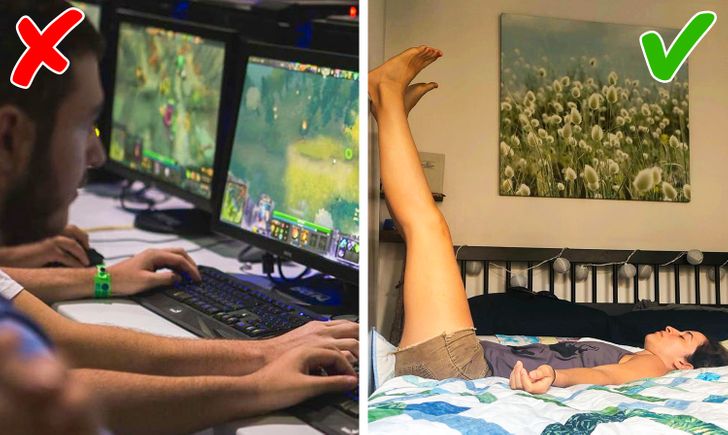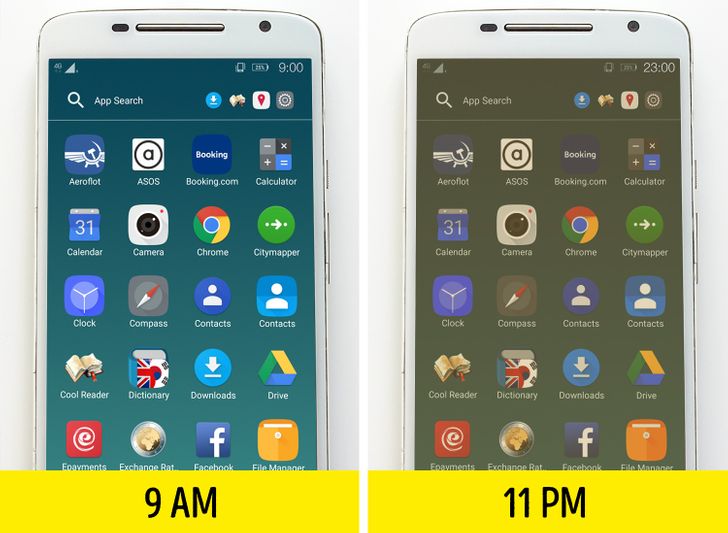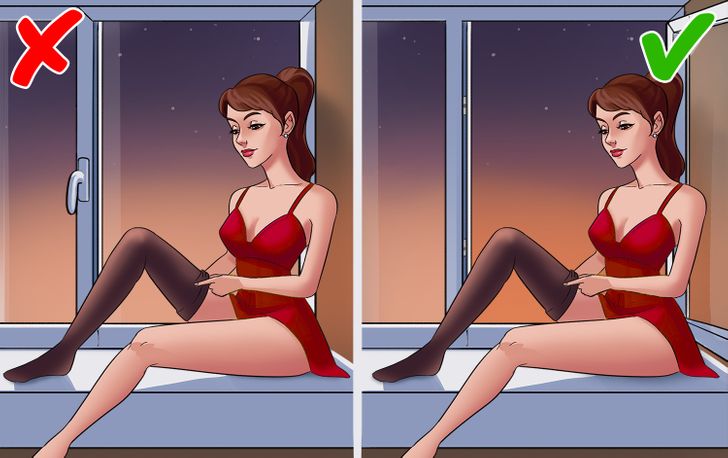We usually underestimate our sleep, but the situation might change if we start to experience problems with falling asleep. NASA astronauts know very well what a sleep disorder is as they often suffer from insomnia. To avoid these situations, scientists have developed a method of falling asleep that has proved its efficacy both in space and on Earth.
We will tell you about NASA’s astronauts’ sleep patterns and rules that will help you forget about insomnia.
7. Always go to bed and get up at the same time.

© gamerboy.ken / Instagram, © jennamd88 / Instagram
The International Space Station orbits the Earth every 90 minutes (which means the sun rises 16 times a day). That’s why astronauts consistently suffer from circadian rhythm sleep disorders. NASA scientists think that the most effective way to cope with this problem is to go to bed and get up at the same time. Before traveling to space, astronauts actually get their own sleep schedule designed in accordance with their rhythms and patterns.
To follow a certain sleep schedule, you can use a computer program that switches your devices off automatically at a predetermined time. You’ll get used to your schedule and feel better and healthier during the whole day. And if you lay on your back with your legs stretched against the wall for 10 minutes before going to bed, you’ll improve your venous outflow and feel relaxed and calm.
6. Quit bad habits that affect your sleep.

© Depositphotos, © Depositphotos
The process of falling asleep mostly depends on the things we do before bedtime. Evening runs or gym workouts activate all processes in our body and increase the body temperature, so a person needs more time to fall asleep and their sleep becomes unstable. That’s why astronauts reduce physical activities a few hours before going to bed. They also stop eating heavy food so the process of food digestion doesn’t deplete their energy.
- To fall asleep faster, try to spend a few hours outside. Don’t do any exercise, and don’t eat heavy meals in the evening. Your sleep will also be deeper and healthier when you skip that cup of coffee at night.
5. Limit the use of electronic devices.

The blue light that our computers and smartphones emits affects our sleep. This bright light (that is 40% brighter than sunlight) reduces the production of melatonin, the sleep hormone. That’s why we can stay up late in front of our computer without any urge to go to bed. NASA astronauts stop using electronic gadgets 2-3 hours before bedtime. CONTINUE READING>>HERE<<
tags: sleep, sleep disorders, insomnia, alternative medicine, mental health, health, self-improvement, spirituality, mindfulness, sleep, sleep disorders, insomnia, alternative medicine, mental health, health, self-improvement, spirituality, mindfulness,sleep, sleep disorders, insomnia, alternative medicine, mental health, health, self-improvement, spirituality, mindfulness,sleep, sleep disorders, insomnia, alternative medicine, mental health, health, self-improvement, spirituality, mindfulness,sleep, sleep disorders, insomnia, alternative medicine, mental health, health, self-improvement, spirituality, mindfulness,sleep, sleep disorders, insomnia, alternative medicine, mental health, health, self-improvement, spirituality, mindfulness,sleep, sleep disorders, insomnia, alternative medicine, mental health, health, self-improvement, spirituality, mindfulness,sleep, sleep disorders, insomnia, alternative medicine, mental health, health, self-improvement, spirituality, mindfulness,


